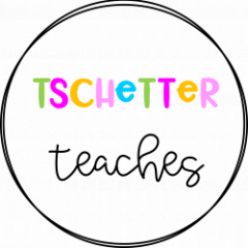I have a previous post that talks about my group’s discussion of Media Literacy in a post named “Emotional Damage”, please check that out! I had posted my blog response for the wrong week, oops.
For this week’s reflection, I want to look at our group’s Mentimeter results:


Media literacy has many aspects that can contribute to confusion surrounding the final “definition”. As the Center for Media Literacy states,
Definitions, however, evolve over time and a more robust definition is now needed to situate media literacy in the context of its importance for the education of students in a 21st century media culture.
Center for Media Literacy
I can see that even in this class we have a large definition for Media Literacy, as can be seen in our Word Cloud. There are few repetitions in our responses, although they all contribute equally to the evolution of Media Literacy. Of course, this Mentimeter was limited due to the 3 responses per participant and there are several synonyms in the Word Cloud. There are many responsibilities involved in Media Literacy whether we are consuming or creating content.
Gratefully, we live in a society where we do have the option of being Media Literate, we can now clearly see the effects of a government controlled media affecting the Putin Russian invasion. It is surreal to see war being played out on social media, and we can see journalists and citizens risking their lives in order to protest and share (mis)information.
In essence, my (shortened) view of literacy is being able to consume, comprehend, analyze, understand context and format, respond, and apply in different contexts. This means I can apply this to Mathematical Literacy, Reading, Writing, Speaking, and Listening Literacy, Science Literacy, and Physical Literacy (plus more!).
As Chris’ article is appropriately titled, “A Reminder That ‘Fake News’ Is An Information Literacy Problem – Not A Technology Problem”. This article investigates how anonymous posters are not examined for bias. It is interesting that reputable journalists, scientists, and experts are increasingly scrutinized but we still aren’t looking critically at all the media we consume. Our EC&I 832 class appears to agree in the Agreement Scales, as under the statement “journalists report facts” our class fell almost directly centered between strongly disagree and strongly agree.
Patricia’s article, The Challenge That’s Bigger Than Fake News, summarizes this sentiment:
Determining who’s behind information and whether it’s worthy of our trust is more complex than a true/false dichotomy
Sarah McGrew, Teresa Ortega, Joel Breakstone, Sam Wineburg
Bart’s article, What is Media Literacy and Why Does it Matter?, tells that Americans spend an average of 473 minutes each day consuming media. This highlights the increasing importance of Media Literacy.
Check out our groups video on Media Literacy for an introduction to Media Literacy and how to teach it to your students:
I began my journey of teaching Media Literacy by introducing Digital Citizenship to Bart’s 7/8 class last week, check out the blog post for more information.
Happy Teaching,
Leah

Timely, how media literacy seems to be so important currently with the Ukraine Russia conflict. Teaching youth the skill of obtaining accurate information seems very important, critical thinking skills will serve our global population well on and offline. Great post.
Thanks for sharing the results Leah! It is nice to see how things were broken down between respondents and how the overall answers may have differed from the ones I submitted myself.
Yes, thanks Leah for sharing the menti results. To be perfectly honest I was only able to feel confident in my responses after I reviewed your articles from last week. If you would have asked me last semester I imagine my responses would have been totally different. Look at me learning at 40! As far as the scale of agreement it is certainly nice as Brittney mentioned to see how others respond…are there more like out there?
We only consume content online and sometimes we do not even put a second thought in it. I liked that how you compared social media running war stories with literacy. While reading your blog I was able to connect it with myself as I have to give an IELTS exam to prove my English abilities for taking admission in my Master’s. Although since kindergarten, I was in an English medium school but still that exam was mandatory. We judge the literacy and knowledge based on some exams. What do you think about it?
Thanks for sharing the results, Leah. It is mandatory to teach youth about the tools required in this scenario… Also, we as adults/parents/teachers digital literacy is vital. The more literate we become, the more we will be able to pass this knowledge to our younger generations
Thank you, Leah! I loved seeing the results from the Mentimeter. It goes to show that we all struggle to identify when sources of information are accurate or providing misinformation. If we are to teach these critical skills to students, we need to spend time working to develop them ourselves and “walk the talk.”
Media literacy needs its own spot in the curriculum if I haven’t said it enough already. I thought that it was important before, however, in the last two years with the pandemic, Russia/Ukraine, Olympics, and more, we have seen an overwhelming amount of fake news, propaganda, and misinformation spread like the wildfires we see up north in Saskatchewan. I personally have seen quite a shift in critical thinking skills and students’ abilities to analyze information and use their media literacy skills to decipher real from fake. Thanks so much for this post, it was exactly what I needed to read this week!